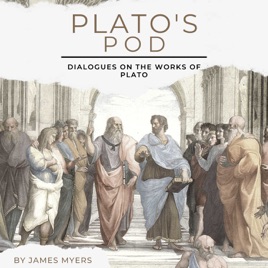
Advertise on podcast: Plato's Pod: Dialogues on the works of Plato
Rating
4.6 from
Country
This podcast has
56 episodes
Language
Publisher
Explicit
No
Date created
2021/07/21
Average duration
109 min.
Release period
24 days
Description
Welcome to Plato's Pod, a bi-weekly podcast of group discussions on the dialogues of Plato held through Meetup.com. Anyone interested in participating, whether to learn about Plato or to contribute to the dialogue, is welcome to join with no experience required! The podcast is hosted by amateur philosopher James Myers and inquiries can be e-mailed to dialoguesonplato@outlook.com. Wherever we go in our discussions we gain knowledge from each other’s perspectives, and for the increase in knowledge we invite everyone to add their voice to the dialogue. Plato, without a doubt, would have imagined no better way than in dialogue for knowledge – the account of the reasons why – to find its home.
Podcast episodes
Check latest episodes from Plato's Pod: Dialogues on the works of Plato podcast
Plato's Laws - Book X, Part 2: Reason as the Cause in the Middle of It All
2024/02/16
Plato's Pod continues its series on Plato's longest work, The Laws, picking up where we left off two weeks ago with the second part of Book X, near the end of the dialogue. In Book X, the three characters - an unnamed Athenian speaking with Clinias (from Crete) and Megillus (from Sparta) - set out the logic for reason as the primary cause of the universe, and reason's central function in the soul's moderation of need and desire. But have the three gone too far in prescribing the death penalty for any citizen of Crete's new colony, Magnesia, who refuses after every attempt at explanation and reconciliation to acknowledge reason as a god? On February 4, 2024, members of the Toronto, Calgary, and Chicago Philosophy Meetup groups met to consider the arguments. Is it just to impose reason in the form of a "state religion," one participant asked, or have the Athenian, Clinias, and Megillus adequately established that reason is no longer a matter of belief but a matter of fact? How do they define "impiety," for which death is the ultimate penalty, and is it fair to see it as a disease and demand that non-believers justify themselves? Some fascinating perspectives were offered in our discussion on the very different view of the universe and soul that is presented in Book X, which we will revisit when we turn to the beginning of The Laws in our next episode.
more
Plato's Laws - Book X, Part 1: Universal Patterns
2024/02/02
On January 21, 2024, Plato's Pod began its extended series on Plato's longest and perhaps most enigmatic and impenetrable dialogue, The Laws, which is said to have been his final work. Members of the Toronto, Calgary, and Chicago Philosophy Meetup groups began by discussing Book X, near the end of the dialogue, which features Plato's cosmology. The immaterial soul, says the unnamed Athenian speaking with a Cretan and Spartan, is the oldest thing in the universe, older than material physical matter and therefore the primary cause of all motion. Our discussion ranged from Plato's definition of "god" and the soul's power of persuasion, to the basis of the soul's laws. Are the laws rooted in universal nature, or in the time-bound variability of convention? Many fascinating points were raised, setting the stage for the second half of Book X in our next episode.
more
Plato's Critias Revisited: The Tale of Atlantis and the Harmonics of Memory
2023/12/18
Plato brought the legend of Atlantis to the world in the Timaeus, and in the Critias provided many details of the fabulously wealthy and technologically advanced society that fell into disharmony and disappeared in a great earthquake 9,000 years earlier. As the character Critias relates the story, over time the Atlanteans gradually forgot their divine origin from the god Poseidon and began to pursue material wealth, losing their harmony and bringing upon themselves the punishment of Zeus. On December 3, 2023, members of the Toronto, Calgary, and Chicago Philosophy Meetup groups addressed the curious ending of the tale told by the character Critias, just as he was about to quote the words of Zeus. Was this cliff-hanger, “and he said …” a theatrical device of Plato, or a case of lost writing, or was Plato telling us that no human can know the mind of a god? The theme of memory plays throughout the dialogue, and Critias says that memory is particularly difficult when opinion applies in representing human actions over time. Was the ancient story that Critias relates a warning to the Athenians of his time about social constitutions like those of Atlantis that become too rigidly rooted in the past, and are there warnings in it for our time? The mystery of Atlantis has endured for 2,400 years since Plato’s writing, and in our discussion we may have found some clues to understanding the lessons of Atlantean history.
more
Plato's Timaeus Revisited: Part IV - The Soul's Perceptions in the Universal Middle
2023/12/03
Plato’s Pod concluded its revisiting of Plato’s Timaeus, covering from 53(a) to 72(d) with a focus on sensory perception in relation to triangles and what have come to be known as the five Platonic solids because of this dialogue. It was 2,400 years ago, when Plato wrote Timaeus, that he revealed to the world knowledge of the only five regular solids in the universe. Why did Plato, who was a geometer as well as a philosopher, go to great lengths to make the character Timaeus discuss triangles and the five regular solids in such detail? A fascinating discussion ensued on November 18, 2023 when members of the Toronto, Calgary, and Chicago Philosophy Meetup groups brought forth ideas on our souls’ capacity for measurement of the “necessities” in the surrounding realm of Becoming, and the ethical implications of our measurements. The exceptional properties of the five Platonic solids were discussed, and perhaps most intriguing was one member’s question about the spherical universe that Timaeus presents: “Is there a triangle in the very center of the sphere?”
more
Plato’s Timaeus Revisited, Part III: Perceiving Imitations of Being as they Become
2023/11/17
How does perception of shape relate to our understanding of time, when everything we see, touch, taste, smell, and hear is in a constant state of motion and change? The question occupied members of the Toronto, Calgary, and Chicago Philosophy Meetup groups on November 5, 2023 in reading the assertions of the astronomer Timaeus on the interplay of proportions and probabilities in a spherical universe with a soul circling around its middle. Beginning at 48(a) in the dialogue, Timaeus introduces the concepts of Necessity, a container for the limits of things in the process of Becoming, and the four fundamental physical elements of earth, fire, water, and air – the latter two of which intermediate the first two. What does all of this mean? And what came first in the universe: physical objects, or intelligence? We will pick up in our next episode where we left off in this, with triangles and the five Platonic solids.
more
Plato's Timaeus Revisited: Part II - A Universe Centered on the Soul
2023/11/03
Plato’s Pod continues its coverage of Plato’s Timaeus, from 30(d)-47(e) where the astronomer Timaeus explains the construction of the universe centered on the soul. On October 22, 2023, members of the Toronto, Calgary, and Chicago Philosophy Meetup groups discussed the soul’s vantage in the timeless realm of Being relative to motions in the universe’s physical realm of Becoming, and our capacity for reason to differentiate and integrate information received from the physical senses. Timaeus claims that knowledge of proportion is essential to reason, which is one of the questions that the group considered. Participants brought forward many fascinating observations, including a comparison of today’s atomic model to the way Timaeus depicts the universe as spherical. The session ended with Timaeus’ unique description of the nature of time, which we will revisit at the beginning of the next meeting.
more
Plato's Timaeus Revisited: Part I – Cities in Motion for both Observer and Observed
2023/10/15
Why does Plato’s Timaeus, on the creation of the universe, begin with Socrates disavowing the imagined city of The Republic? As Socrates and the astronomer Timaeus review their discussion of the previous day, which was the basis of Plato's epic on justice and political organization, Socrates declares that he can’t picture the idealized city in motion. It’s a question discussed by members of the Toronto, Calgary, and Chicago Philosophy Meetup groups on October 8, 2023, when Plato’s Pod revisited the first part of the Timaeus, covering to 30(d). Why does Plato's dialogue then go on to discuss the legend of Atlantis, before Timaeus describes the fundamental division of the universe between Being – which is the realm of the observer – and Becoming, which is the part of the universe that consists of physical limits? Many fascinating points were raised by participants, touching on the scientific method, determinism and probability, the nature of time as linear or circular, and much more.
more
What Would Socrates Say About ChatGPT?
2023/09/25
Plato’s Pod introduces its 4th season by demonstrating the relevance of ancient philosophy to modern technology with the question, “What Would Socrates Say About ChatGPT?” We take Socrates to the offices of OpenAI to meet the company’s CEO, Sam Altman, and imagine the questions that Socrates would have after the technology is explained to him. In the course of the imagined meeting, we bring a number of Plato’s dialogues previously featured in the podcast into consideration, including the Cratylus, The Republic, the Phaedo, the Phaedrus, the Meno, the Statesman, the Theaetetus, the Critias, and the Philebus. What do you think - are there some timeless and fundamentally questions about our relationship with technology?
more
Plato's Crito: The Constitution of Souls
2023/07/18
What is our relationship with the laws of the society of which we are a part, and what should we do when the laws are misapplied by a misguided majority? For Socrates, in Plato’s Crito, the answer was clear: to endure the consequences, since he benefited from Athenian society and its constitution for seventy years. Wrongly convicted, and faced with his execution in two days, Socrates tells his friend Crito that it is not right for an individual to take the laws into his own hands, even if the laws have been corrupted by their custodians. On June 26, 2023, members of the Toronto, Calgary, and Chicago Philosophy Meetup groups convened to consider Crito’s reasoning for Socrates’ escape, and the conversation with the laws that Socrates stages at the end of the dialogue. One participant observed there is a family metaphor with Athens throughout the dialogue. Another participant asked, is it philosophy itself that Socrates was defending? And indeed, if Socrates had followed Crito’s advice and bribed his way out of prison, would we be discussing Socrates now, 2,400 years after Plato wrote about him?
more
Plato’s Ion: The Stories That Souls Trade
2023/07/04
“We are all Ions,” one participant observed, and maybe that’s truly the case if each one of us is a link in a storytelling chain. In Plato’s dialogue the Ion, Socrates reminds the title character, who is a proponent of the poet Homer, that since Homer represented an idea, Ion is representing Homer’s representation. With each successive representation, some of the original idea is altered to suit the memory and external influences acting on the storyteller. Is each one of us acting as a representative of a representative of one, or many, original idea(s)? Plato’s short dialogue was the subject of a great discussion and originality of ideas among members of the Toronto, Calgary, and Chicago Philosophy Meetup groups on June 11, 2023. We concluded that while, like Ion, we all need inspiration, care must be taken to avoid the wrong path because every one of us learns from our failures. In Socrates’ analogy, of the divine power as a magnetic stone that moves surrounding souls as if they were iron rings, where do we stand in relation to each other? What if, as one participant observed, Socrates intended to represent philosophy itself – the original idea – in the magnetic stone, as the timeless presence always in our midst?
more
Platio's Symposium, Part 3: Knowledge Versus Mastery, and Love's Light in The Cave
2023/06/15
In the opening of the last third of Plato’s Symposium, the very drunken Alcibiades erupts in a comic and dramatic demonstration of his love for Socrates. When members of the Toronto, Calgary, and Chicago Philosophy Meetup groups met on May 28, 2023, we noted that whereas the previous six speeches were about love in the abstract, Plato chose to end the dialogue with the practical. In our discussion, Alcibiades was compared to the prisoner in the cave of Plato’s Republic, caught in between, and pained by, the contrast of the light of love’s beauty and the shadowy images on the cave wall. One observed that Alcibiades was trying to leave the cave, but without the right reasons. And at the end of our discussion, we came to see that Alcibiades’ inability to escape his love from Socrates is a metaphor for Athens’ inability to escape Socrates, and that Socrates’ own fate may be an example of the dangers when the enlightened reveal the truth, of which the prisoner in the cave was warned. It was a fabulous conclusion to three amazing meetings on Plato’s Symposium.
more
Plato's Symposium, Part 2: Love and the Immortal Good
2023/05/31
Speeches on love, first by Aristophanes, then Agathon, followed by Socrates who relates the wisdom of Diotima, lead us to wonder whether love is, as Diotima says, the mortal human's search for the immortality of the universe. On May 14, 2023, members of the Toronto, Calgary, and Chicago Philosophy Meetup groups gathered to piece together the grains of truth from the first six speakers in the symposium, or drinking party, attended by hungover Athenians. In our discussion, we agreed that love is expressed not only between humans, but by philosophers who are, by definition, lovers of wisdom. Some fascinating perspectives on love, and love's purpose, emerged. Our dialogue spoke to themes that touch on an eternal equality of division between one soul and another, and the fluid motion of all souls among the one. Perhaps, as Diotima observed, we are all pregnant and looking to give birth in beauty - whether the birth is that of another human, or the inception of an enduring memory of a great human craft. As one member observed, the childless da Vinci gave birth to a beautiful memory that grows stronger in time - and in this great discussion, some memorable observations were made on love, the thing we all want more of.
more
Podcast reviews
Read Plato's Pod: Dialogues on the works of Plato podcast reviews
Podcast sponsorship advertising
Start advertising on Plato's Pod: Dialogues on the works of Plato & sponsor relevant audience podcasts
You may also like these philosophy Podcasts
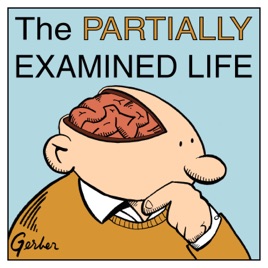
4.6
2016
706
The Partially Examined Life Philosophy Podcast
Mark Linsenmayer, Wes Alwan, Seth Paskin, Dylan Casey

4.6
869
204
Casual Preppers Podcast - Prepping, Survival, Entertainment.
Casual Preppers

4.7
1679
414
The Survival Podcast
The Survival Podcast

4.6
265
90
The Zen Mountain Monastery Podcast
Zen Mountain Monastery
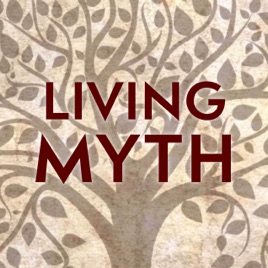
4.9
751
69
Living Myth
Michael Meade
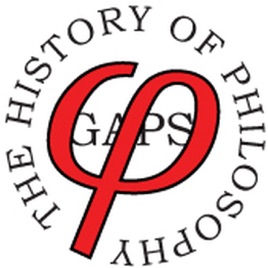
4.7
1461
446
History of Philosophy Without Any Gaps
Peter Adamson
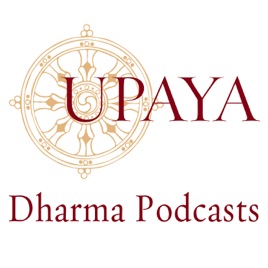
4.5
229
51
Upaya Zen Center's Dharma Podcast
Joan Halifax | Zen Buddhist Teacher Upaya Abbot

4.7
316
289
Stoic Coffee Break
Erick Cloward

4.8
2530
282
Very Bad Wizards
Tamler Sommers & David Pizarro
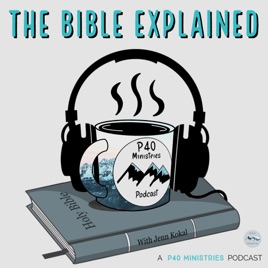
4.9
97
906
The Bible Explained
Jenn Kokal



